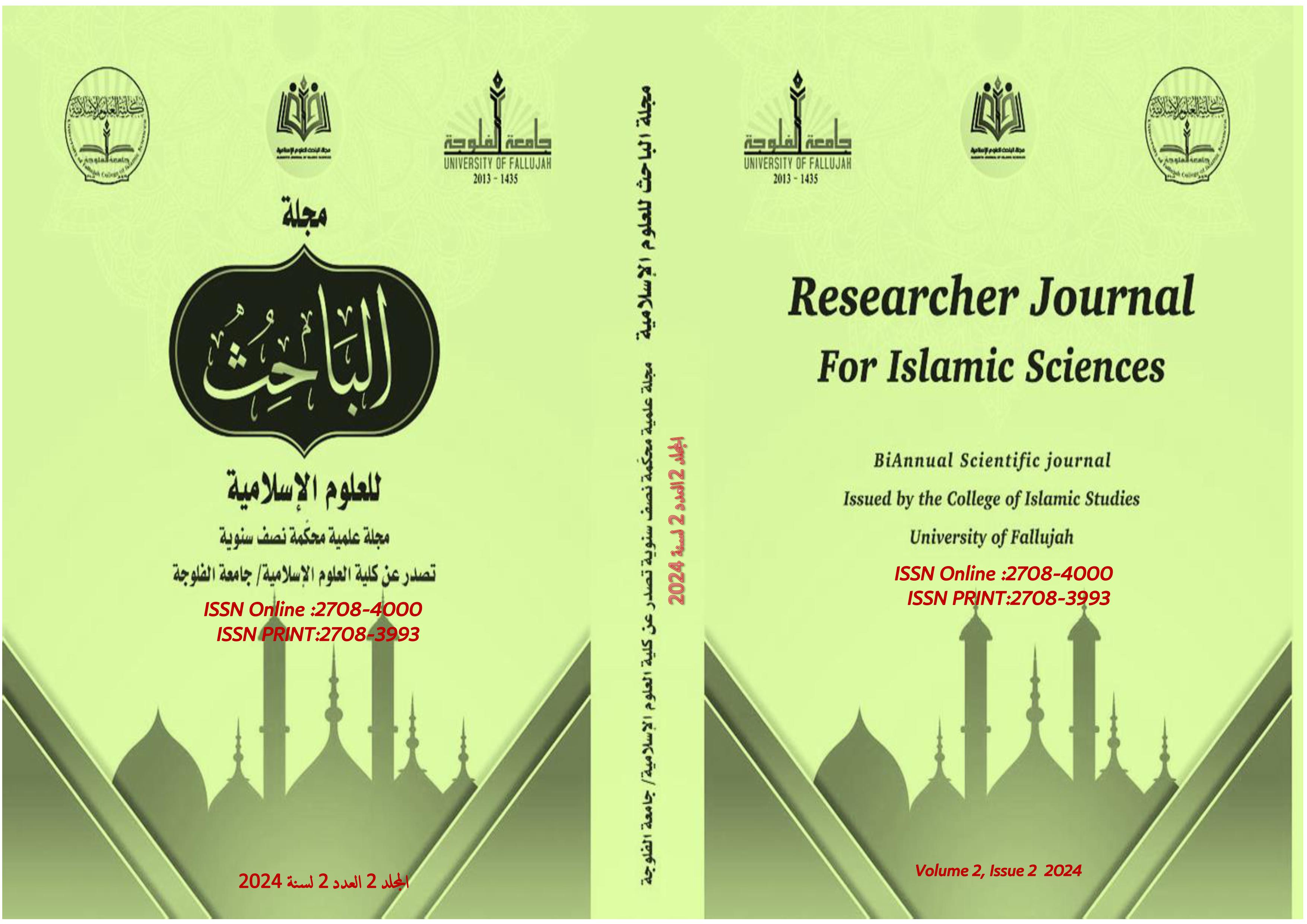Jurisprudential Issues with Two Opinions in the Shafi’i School in the Chapter on Fasting from Al-Bayan by Al-Imrani (d. 558 AH) and Their Impact on Contemporary Fatwas : A Comparative Study
Abstract
Imam Al-Imrani (may Allah have mercy on him) is considered one of the prominent scholars of the Shafi’i school of jurisprudence, known for his extensive knowledge in jurisprudence, its principles, grammar, and theology. His school of thought (may Allah have mercy on him) is well-recognized and followed in Iraq. Al-Imrani, a Yemeni by birth and origin, is among Yemen’s renowned scholars. He authored several works in Islamic jurisprudence, most notably Al-Bayan, which is esteemed among students of knowledge.
This book is one of the significant references in the Shafi’i school, where Al-Imrani (may Allah have mercy on him) presented various aspects, including opinions categorized as “two views.” It is important to note the distinction between a “view” (wajh) and a “saying” (qawl). A view represents the opinions of Imam Al-Shafi’i’s disciples, derived and built upon his principles and methodology. Sometimes, these views are personal judgments of his disciples and may not align directly with Al-Shafi’i’s foundational principles, thus not attributed to him personally. In contrast, a saying (qawl) is the statement of Imam Al-Shafi’i himself, which is divided into two categories: the “new” and the “old” sayings.
This study focuses on four jurisprudential issues related to fasting, as mentioned in Al-Bayan by Al-Imrani (may Allah have mercy on him), exploring the differences between these views and the opinions of other schools of thought that align with them.
Keywords:
Jurisprudence, Two Views, Shafi’i School, Fasting, Al-Bayan, Impact, Contemporary FatwasAdditional Files
Published
How to Cite
Issue
Section
License
Copyright (c) 2025 Researcher Journal of Islamic Sciences

This work is licensed under a Creative Commons Attribution-NonCommercial-NoDerivatives 4.0 International License.
تجربة






